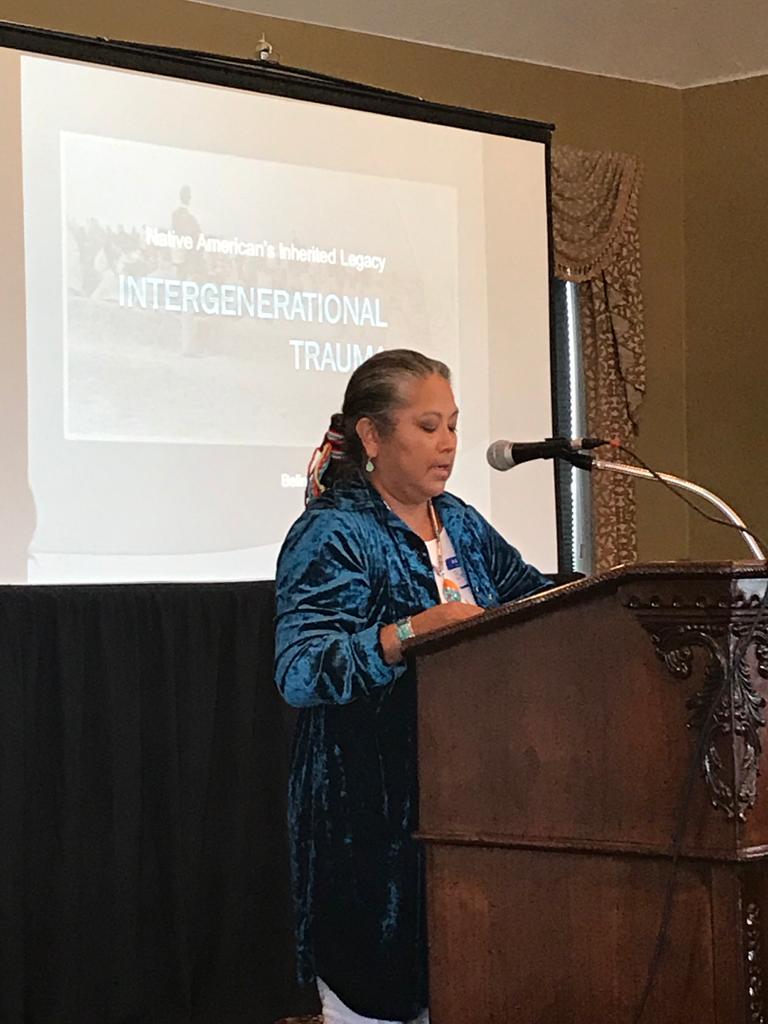Purpose
To provide guidance for organizations, conference organizers, and sponsors on the inclusion of Indigenous people and communities into psychedelic science events, such as conferences, webinar series, workshops, and other formats.
Cultural Humility
Partnering with Indigenous communities or individuals takes some cultural humility and competence.
As you create your events, you may be inclined to invite Indigenous people to provide a unique perspective on a specific topic. Partnering with Indigenous communities or individuals takes some cultural humility and competence. This means that the organizers should come with good intentions of honoring indigenous people’s beliefs, customs, and values. It also means acknowledging their differences and accepting them for who they are.
Cultural humility is fundamentally about meeting someone where they are at. It requires an ongoing process of self-exploration and self-critique. An openness and willingness to learn from others and listening to understand is key to the success of this relationship. Building a relationship with Indigenous people is not about moving your personal agenda forward. They are not there to fulfill your desire for representation. Rather, it is about working in collaboration for the betterment of all.
Let’s cover a few terms to aid in your understanding of Indigenous people in order to bridge understanding.
Terminology
From a Western view, “indigenous” is synonymous with “aboriginal” and “native.” Indigenous communities, peoples, and nations are those that have a historical continuity with pre-invasion and pre-colonial societies.
In the United States, different terms are used to refer to the indigenous people that reside here. These terms are “American Indian,” “Native American,” and “Indian.” A further explanation of each of these terms can help organizers properly address these individuals and community in a respectful manner.
The term “American Indian” excludes Native Hawaiians and some Alaskan Native people. “Native American,” as a general principle, is a person who has some degree of Indian blood and is recognized as an Indian by a tribe, village, or the United States. There exists no universally accepted rule for establishing a person’s identity as an Indian (Native American Rights Fund, n.d.) The term “Indian” has a negative connotation to Indigenous people of North American and is a reminder of the term used by Columbus when he arrived to begin the colonization of the Americas.
The general consensus of members of the Native American tribes in the United States is that they prefer to be referred to by their tribal affiliation in their native language. For example, Diné or Dineh versus Navajo. As of June 6, 2020, there are 573 federally-recognized tribes in the United States, and each is distinct with their own culture and languages (Native American Rights Fund, n.d.). For many Native American tribes, these names were given to them by those who conquered them or by the US federal government.
Why is Inclusion Important?
Incorporating traditional indigenous knowledge into the discussion allows for a wider understanding of the plants and their environment.
As stewards of psychedelics (or entheogens, sacred plant medicines) for generations, Indigenous people have a unique perspective on plants. This perspective fosters a wider understanding of entheogens beyond the Western scientific perspective. Incorporating traditional indigenous knowledge into the discussion allows for a wider understanding of the plants and their environment.
Here are some points to keep in mind as you create your event and build a relationship with Indigenous people:

Building a Partnership
- Once a relationship is established, continue to have dialogue with the indigenous person or community. Keep in mind: In order to build trust and strong relationships, consider how you can support their work and projects.
- Have an ongoing dialogue with the invited guest on their perspective on the topic in advance of the event. Come to the discussion to understand through their lens. Here are some questions to keep in mind: What are their trigger points or sensitive topics? What matters to them and their community? What are the benefits for the guest and their community?
- Outside the context of your event, consider how you can offer support at other events and in their communities.
- Provide the opportunity for Indigenous people to have autonomous and internal discussion among themselves for collective dialogue well in advance of the event.
Building a Relationship
Take into account that values you consider core to your beliefs, such as “universal rights,” gender roles, or others may not resonate with your indigenous speaker or are not a part of their world dynamics.
- Take into account that values you consider core to your beliefs, such as “universal rights,” gender roles, or others may not resonate with your indigenous speaker or are not a part of their world dynamics. It is best to get this clarified with them ahead of time.
- Consider honoring your indigenous guest with a small gift to show your gratitude. In indigenous communities, individuals can be generous gift-givers. In many of these cultures, it is believed that the richest people are those who are willing to give away or share something from their culture. A small consideration may be flowers with a nice welcome note in their room upon arrival.
- Do your own research about the indigenous lineage that the speaker is from and don’t expect them to do this for you. Some topics worth researching are: What tribe or indigenous group are they from? What is the history, and are they matrilineal or patrilineal? What are the issues in the community? What type of government structure is in place to govern their community? What is the role of spiritual, traditional healers in the community? Does this community use plant medicines and do they have a website affiliated with their work?
- Consider hiring an indigenous person to support you in doing the research and act as the primary contact with your guest.
- Consider sharing a meal with the indigenous speaker in a non-formal setting prior to the conference. This allows them to get to know you, and you to know them, better.
- Keep in mind that many Native American people may prefer privacy and can be very discrete. So, be mindful of the type of personal questions you might ask. Approach this topic with care.
- Be aware that, although Indigenous people may hold advance degrees, they may choose not to include that as part of their bio. The value of degrees is secondary to building a relationship with others; this demonstrates humility in some indigenous cultures.
The Event
Be aware that there are individuals who may claim some kind of indigenous heritage or consider themselves as indigenous and, yet, they may not be recognized as such by that community.
- As part of your conference logistics, plan on another individual accompanying your guest. This is especially if the invitee is an elder. Consideration should be given to covering the costs of the travel, lodging, and an honorarium. This indicates respect for their knowledge and their willingness to share their knowledge.
- As you develop the schedule for your event, strongly consider placing Indigenous people in the main track of your event or program. In addition, Indigenous people should be considered and included as part of the “scientific” discussions.
- On certain occasions, it might be pertinent to give Indigenous people an autonomous space, separate from the rest of the speakers, aimed at collective internal dialogue among themselves.
- Invite Indigenous people to be an active part of the dialogue in your organization and also ensure that there is a return benefit to them. Tokenization must be avoided. Tokenism is another form of racism. Tokenism allows those in power to maintain the appearance of non-racism and seem to be champions of diversity, as long as they are beside their recruited indigenous person.
- As you select an indigenous presenter, consider whether the individual is representing their individual viewpoint, speaking on behalf of an organization, or speaking as a representative of an indigenous community. It is especially important, during the introduction of the presenter, that this is communicated to the audience to avoid any misrepresentations or conflicts.
- Be aware that there are individuals who may claim some kind of indigenous heritage or consider themselves as indigenous and, yet, they may not be recognized as such by that community. Most Native American individuals in the United States have a primary affiliation with one tribe, or what is referred to as “an enrolled tribal member.” It is unfortunate there are people who fabricate heritage positions and others who capitalize on indigeneity as a resource to culturally appropriate. It is critical that the organizers of the event understand the perspectives these individuals are bringing to the event and that these perspectives may not necessarily be the views of the lineage they are claiming.
- Do your proper due diligence when selecting speakers. Be aware there are well-known institutions that may not be organically connected to indigenous communities who may suggest presenters. Take the extra time to find the potential presenter’s position with the institution. Remember that an individual may not necessarily have been given the authority to speak on behalf of a tribal group or a tribal organization. Request a c.v. of their work.
- While arranging accommodations for indigenous speakers, make an effort to provide the same offering or better as you do for other non-indigenous speakers. Costs associated with visa processing and travel costs should be fully covered, and you should allow for a per diem while they are traveling to your event. Work the logistics out well in advance of the event. In addition, instead of asking them to catch a taxi, it is better to have a primary contact pick them up and drop them off at their destinations; this is especially true in large urban cities that they may not be familiar with.
- In the early stages of planning, communicate the theme of your conference to the indigenous speaker and offer some suggested topics that they may speak on. Give them the opportunity sit with the topic before committing. In subsequent conversations, listen to understand their ideas on the subject they are being asked to present on.
- An academic or scientific psychedelic conference may not be the most ideal event for an indigenous person to be a part of. You might consider inviting them to provide a workshop where they can share their culture and perspectives or give them the opportunity to do a hands-on event from their culture that may or may not be a part of the event setting. In addition, as a part of the program, an indigenous person may be asked to do the opening or closing prayer for the event. If they will be doing a prayer or ceremony, ensure that you have the ideal setting for this and offer to get what is needed with their guidance. This may require looking into the site’s requirements for use of candles, smudge, and fire. As an additional consideration, the guest may ask that the prayer not be recorded. Honor their request and work the logistics out in advance of the event.
- When introducing the indigenous speaker, make sure that you are comfortable introducing them, especially if their bio includes their language. As an alternative, you might do a general introduction and then allow them to make a more formal introduction in their language; you should discuss this with them in advance. To avoid any misunderstandings, it is suggested that you ask them to send you a small bio ahead of time and discuss with them in advance how they would like to be introduced.
- Identify a primary point of contact for the indigenous speaker throughout the event process to address concerns or questions that may come up. There is nothing worse than being passed from one person to another. This contact should make themselves readily available.
- If the speaker will be sitting on a panel with other speakers, and they are the eldest, allow them to speak first. This is especially true if this person if from the territory in which the conference is being held.
- If the indigenous speaker is a non-English speaking individual, considerations need to be made for a translator for the primary language of the event.
- It is important to communicate dates, commitments, and deliverables in advance. It is suggested that reminders be sent to the guest.
Art by Karina Alvarez.
References
Native American Rights Fund (n.d.). Frequently asked questions.
Resources
Below are some resources that you may find used in doing your research:
Ask First! ~ A Better Practices Guide for Indigenous Engagement:
—
Note:
The author wishes to thank Bia Labate for the original idea of this paper and comments to this version. She also would like to thank Diana Negrín, Emily Sinclair, Celina De Leon and Troy Puha for their comments to the original version of this paper. In addition, the author also acknowledges and appreciates Chacruna’s leadership in creating inclusion and diversity in the field of psychedelic science.
Take a minute to browse our stock:
Did you enjoy reading this article?
Please support Chacruna's work by donating to us. We are an independent organization and we offer free education and advocacy for psychedelic plant medicines. We are a team of dedicated volunteers!
Can you help Chacruna advance cultural understanding around these substances?
















